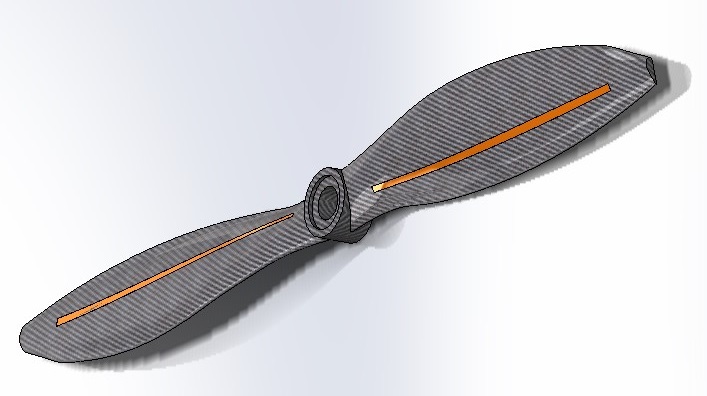Active and Passive Flow Control for Fans and Propellers
Determining innovative methods for improving quiet aircraft propeller performance for increased range and endurance
Quiet unmanned aerial systems are constrained by poor range and endurance due to low energy density intrinsically associated with batteries and fuel cells and due to low compression ratios inherent to small internal combustion and gas turbine engines. Thus, there is a critical need to compensate for these limitations by developing innovative methods to improve propeller performance with low noise emissions. The long-term goal of our research group is to determine effective propeller blade and hub designs, as well as active and passive flow control techniques, to minimize performance losses and noise emissions at low operating Reynolds numbers.
Propeller with Active Flow Control

